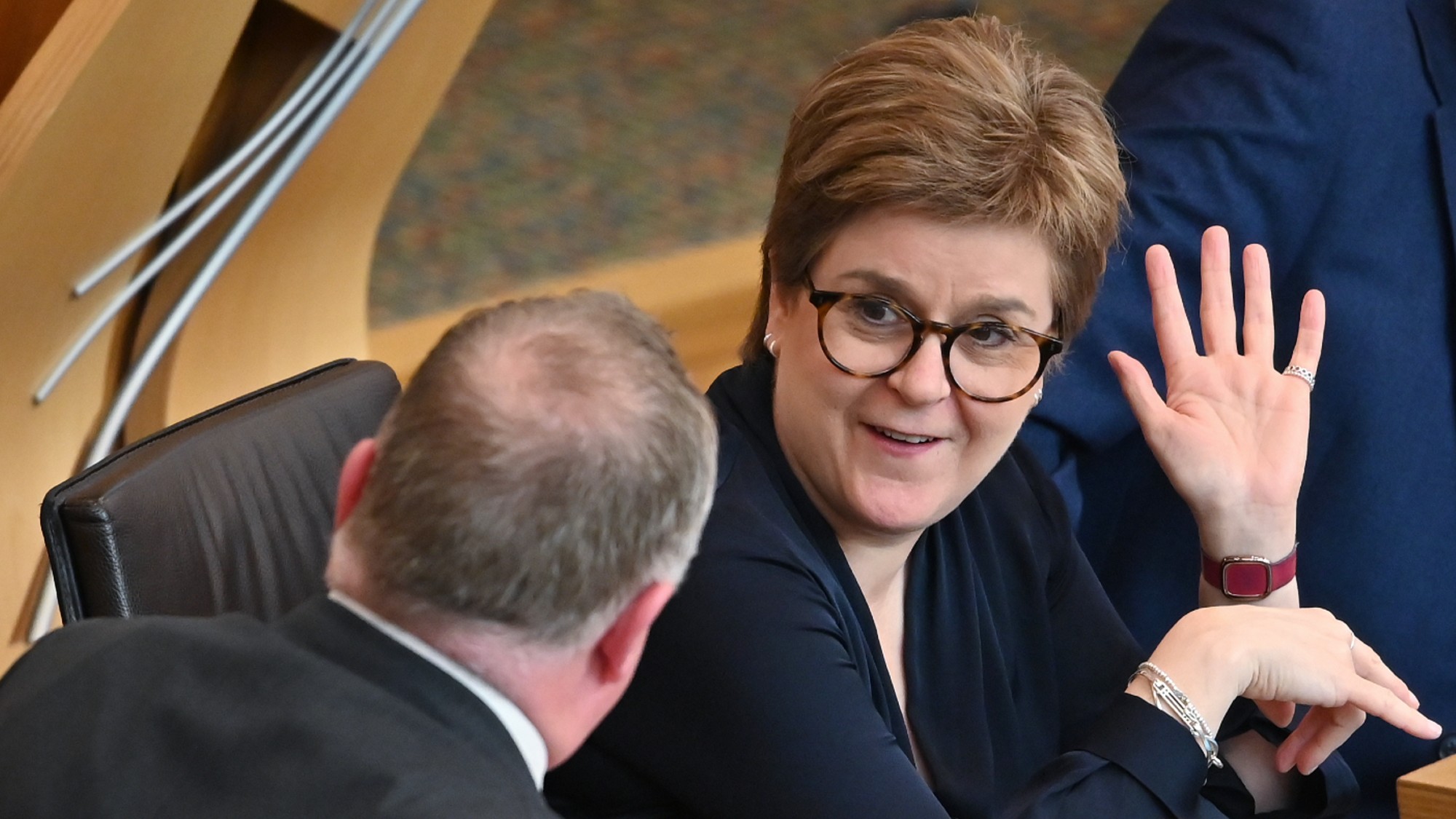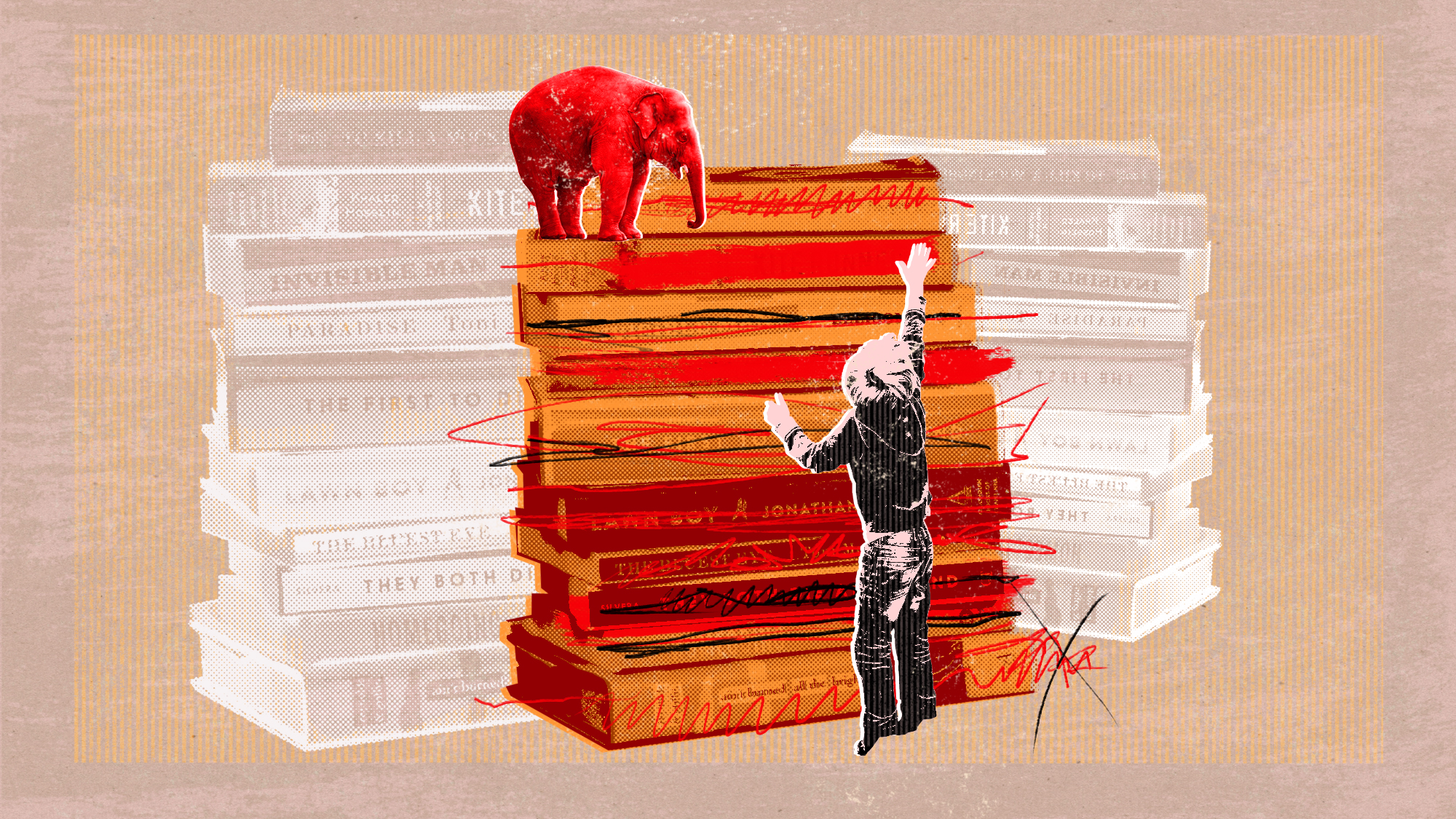Nicola Sturgeon's memoir: making the personal political
Former Scottish first minister attempts to set record straight in 'Frankly' but does she leave more questions than answers?

A free daily email with the biggest news stories of the day – and the best features from TheWeek.com
You are now subscribed
Your newsletter sign-up was successful
"Nicola Sturgeon isn't someone for whom oversharing comes naturally," said The Spectator's political correspondent Lucy Dunn.
Scotland's former first minister has "regularly been labelled 'dour' or 'frosty'" by both opponents and supporters. Her leadership during the Covid-19 pandemic, her stance on Scottish independence, her calamitous Gender Recognition Reform Bill – which "prompted her resignation" in 2023 – and Operation Branchform, the police probe into the finances of the SNP (which led to the arrest of her then husband Peter Murrell), have been "dissected, judged and criticised relentlessly".
But "there don't seem to be many people who really know her". Her memoir "Frankly" seems like "an attempt to shrug off that reservedness" and give people the chance to "see things from her point of view". But "her critics say she is less offering insight, more rewriting history".
The Week
Escape your echo chamber. Get the facts behind the news, plus analysis from multiple perspectives.

Sign up for The Week's Free Newsletters
From our morning news briefing to a weekly Good News Newsletter, get the best of The Week delivered directly to your inbox.
From our morning news briefing to a weekly Good News Newsletter, get the best of The Week delivered directly to your inbox.
'Nigh-on useless'
It's more the latter than the former, said Shona Craven in The National. Two and a half years after she was "grilled" about the implications for Scottish prison policy of saying "trans women are women", she still "stumbles" when asked if rapist Isla Bryson, who was sent to a woman's prison, is a man. "What I would say now is that anyone who commits the most heinous male crime against women probably forfeits the right to be – you know – the gender of their choice," she told ITV's Julie Etchingham.
That position on self-ID differs from what she set out in the book, as well as what she struggled with in 2023. But if she had admitted then that some people could "forfeit" their right to choose their gender, "then self-ID could not have become law and the promises she had made to activists would be broken".
The truth is, Sturgeon "began and continues to fight" the gender row, said Alan Cochrane in The Telegraph. This issue and others, like "the stupid coalition deal" she struck with the Scottish Greens and the "record drug deaths" in Scotland, brought the SNP "to its knees in last year's election". But her book is "getting pretty fair and positive licks in the media" because she "long ago completely conned a large part of the Fleet Street commentariat" into admiring her.
Personally, she has "many good qualities", including a "wicked sense of humour", and she's a "more than decent public speaker". But it's her "gallus nature – Scots for chutzpah – much more than political judgment that's got her to where she is today".
A free daily email with the biggest news stories of the day – and the best features from TheWeek.com
The reality is that Sturgeon was "an extremely poor politician" who "seldom did the right thing". When it comes to her judgement on policies, she was "nigh-on useless".
'Nicola Was Right All Along'
You might ask why "a fierce advocate for Scottish independence" chose London-based Pan Macmillan to publish her memoir, said Kevin McKenna in The Herald.
Indeed, the "gulf" between those who saw her every day and those for whom she was "a more peripheral, and hence more idealised, figure" is obvious from the book's promotional blurbs, said The Times' Alex Massie. None are written by people who live in Scotland.
The "indulgences" granted her by "certain parts of the impeccably right-on London left" included "oodles" of emotional intelligence. This is not just news to those of us north of the wall, "it strikes us as utter poppycock".
Ultimately, her autobiography is "designed to demonstrate, once and for all, that Nicola Was Right All Along". But she "sidles away from the only obvious and inescapable verdict on her record": poor educational and health outcomes, despite Scotland's 25% higher spending per capita than England.
"Still, it is a weakness of contemporary politics that good intentions are expected to substitute for good outcomes. In that respect, Sturgeon was an archetype of a particular type of political success."
Harriet Marsden is a senior staff writer and podcast panellist for The Week, covering world news and writing the weekly Global Digest newsletter. Before joining the site in 2023, she was a freelance journalist for seven years, working for The Guardian, The Times and The Independent among others, and regularly appearing on radio shows. In 2021, she was awarded the “journalist-at-large” fellowship by the Local Trust charity, and spent a year travelling independently to some of England’s most deprived areas to write about community activism. She has a master’s in international journalism from City University, and has also worked in Bolivia, Colombia and Spain.
-
 Switzerland could vote to cap its population
Switzerland could vote to cap its populationUnder the Radar Swiss People’s Party proposes referendum on radical anti-immigration measure to limit residents to 10 million
-
 Political cartoons for February 15
Political cartoons for February 15Cartoons Sunday's political cartoons include political ventriloquism, Europe in the middle, and more
-
 The broken water companies failing England and Wales
The broken water companies failing England and WalesExplainer With rising bills, deteriorating river health and a lack of investment, regulators face an uphill battle to stabilise the industry
-
 ‘It’s hard not to feel for the distillers’
‘It’s hard not to feel for the distillers’Instant Opinion Opinion, comment and editorials of the day
-
 The new age of book banning
The new age of book banningThe Explainer How America’s culture wars collided with parents and legislators who want to keep their kids away from ‘dangerous’ ideas
-
 Taking the low road: why the SNP is still standing strong
Taking the low road: why the SNP is still standing strongTalking Point Party is on track for a fifth consecutive victory in May’s Holyrood election, despite controversies and plummeting support
-
 ‘Gen Z men are facing a surprise workforce crisis’
‘Gen Z men are facing a surprise workforce crisis’Instant Opinion Opinion, comment and editorials of the day
-
 'More was at stake here than the name of a body of water'
'More was at stake here than the name of a body of water'Instant Opinion Opinion, comment and editorials of the day
-
 'Much needs to be done to rein in the global cyberscam industry'
'Much needs to be done to rein in the global cyberscam industry'Instant Opinion Opinion, comment and editorials of the day
-
 'Vance stands at a crossroads'
'Vance stands at a crossroads'Instant Opinion Opinion, comment and editorials of the day
-
 'We have witnessed firsthand how health and civics intersect'
'We have witnessed firsthand how health and civics intersect'Instant Opinion Opinion, comment and editorials of the day